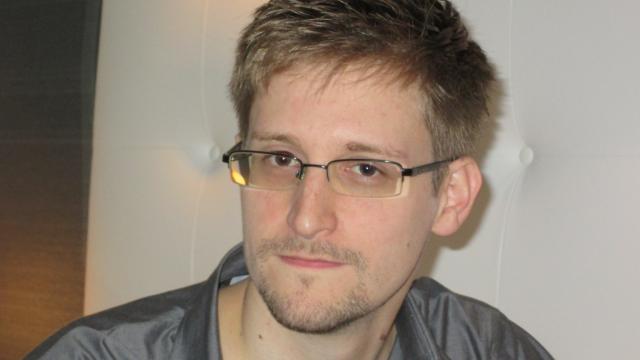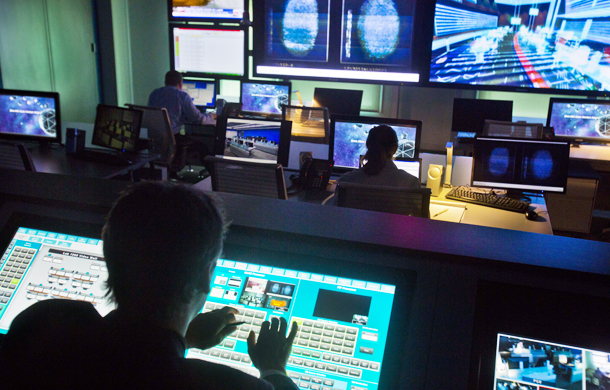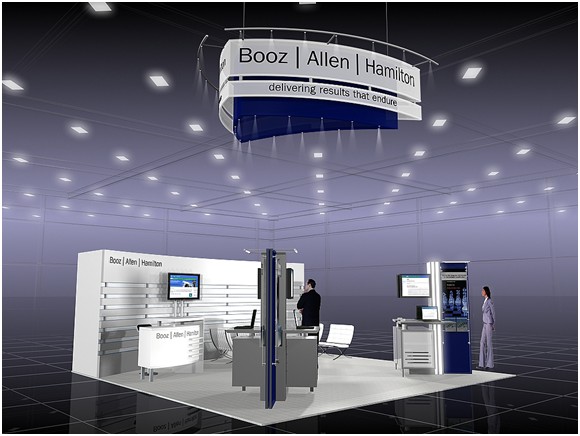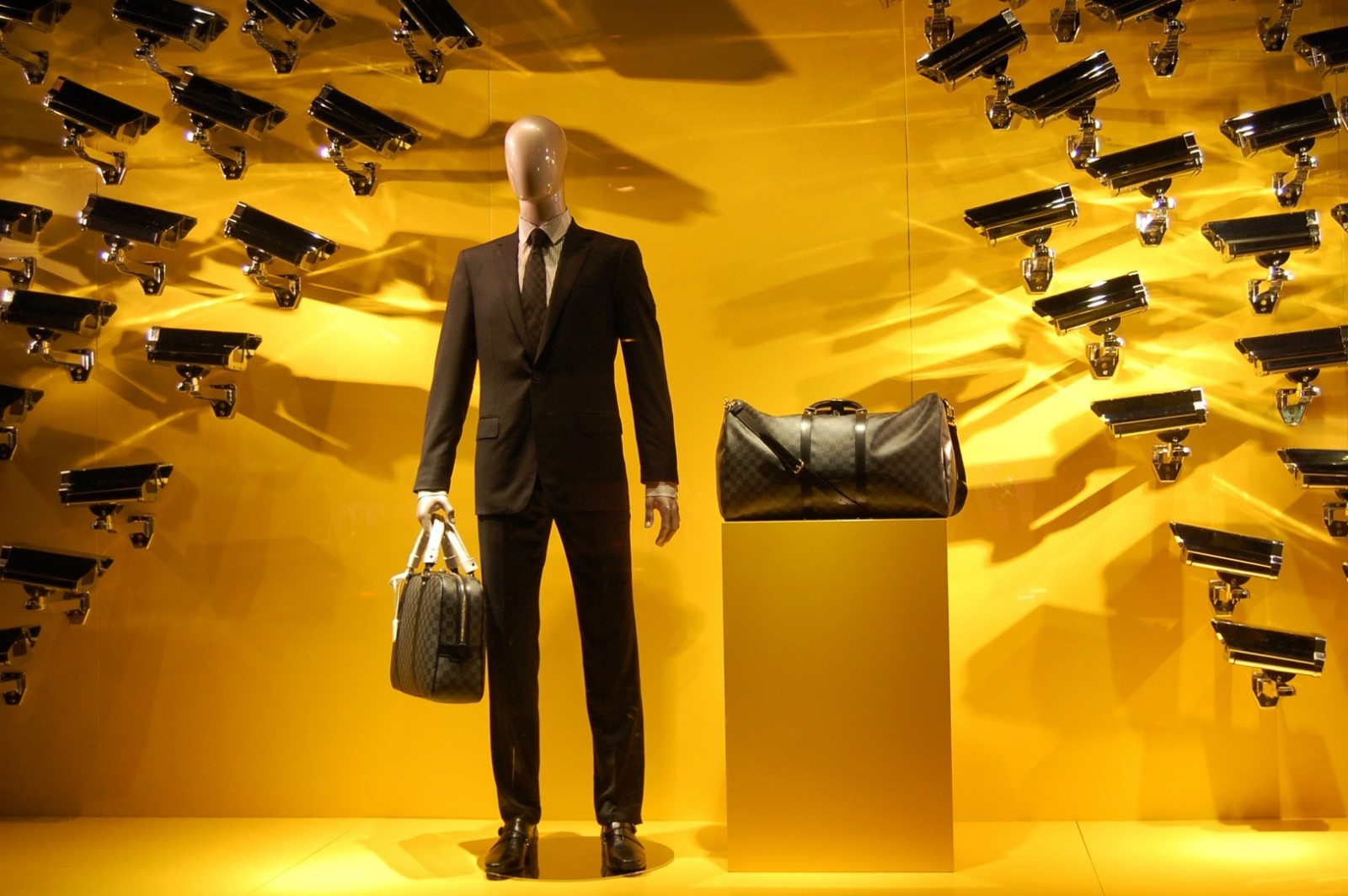
Former Booz Allen Hamilton employee Edward Snowden set off a firestorm this week after leaking documents to The Guardian newspaper about National Security Agency intelligence-gathering activities, including the acquisition of telephone data for millions Americans.
As he hides in Hong Kong, Snowden could become the next Bradley Manning if extradited and tried for crimes that the Obama administration believes compromised national security. Russian officials say they are considering an asylum offer — a possible escape route for Snowden if Hong Kong decides to uphold its extradition agreement with the U.S. Snowden’s case has also sparked a national conversation on the efficacy and morality of private security contracting, as 22 percent of the 1.2 million Americans with security clearances now come from the private sector.
“I think it would call into question the role of the defense contractors,” Joseph Augustyn, a former senior CIA official and principal at Booz Allen, said to the Associated Press.
The Move to Private Intelligence Work
Because of the broad scope of intelligence gathering by security agencies, the federal government often hires private firms, like Booz Allen Hamilton, to perform tasks when there is a lack of qualified federal employees. Edward Snowden was one of nearly 500,000 employees of private firms with access to the government’s most sensitive secrets.
The high school dropout earned a handsome $122,000 salary over the course of a long career but released caches of information to The Guardian that could upset the cozy relationship that has developed between government and private security agencies.
Booz Allen collected $5.9 billion in revenue last year, with a majority of its contracts coming from the U.S. government. The Associated Press reports that 98 percent of Booz Allen contracts were from the NSA and other federal agencies. Roughly three-fourths of its 25,000 employees hold government security clearances, and half have top-secret clearances.
For some analysts, this create a blurred line where it is difficult to separate private contractors, like Snowden, from federal employees.
“The result is a system so enmeshed that government and contract workers are often indistinguishable,” write Wall Street Journal contributors Siobhan Gorman and Dion Nissenbaum.
According to the Office of the Director of National Intelligence, 22 percent of people holding security clearances were contractors last year, down from more than 25 percent in 2009.
“That really illustrates the ingrown nature of the relationship of NSA and its contractors,” said Steven Aftergood, head of the project on government secrecy at the Federation of American Scientists, in an interview with the AP.
The current director of national intelligence, James Clapper, is himself a former employee of Booz Allen. He called the leak “gut wrenching.”
Tight connections with the intelligence community have netted Booz Allen executives some healthy paydays in recent months. The Daily Beast reports that Mike McConnell, former NSA director and current vice chairman of Booz Allen Hamilton, gained an estimated $1.8 million in 2013 through the sale of Booz Allen stock. This is in addition to the $1.03 million he earned each of the past 3 years.
Booz Allen has also signed contracts with the Department of Homeland Security, the FBI and the Air Force, among other federal and state agencies.
The leak could negatively impact Booz Allen, previously one of the most successful contracting firms.
“Booz Allen is becoming the Benedict Arnold of 2013,” said corporate communications strategist Michael Robinson, executive vice president of the PR firm Levick, in an interview with Politico. “But they’re in a straightjacket. … For Booz Allen, it’s probably been a very bad couple of days. What can they do to get out of it? Not much.”
Beyond the cronyism, the relationship may be irrelevant from an intelligence gathering perspective. A determined whistleblower, whether working for the government or a private firm, could speak out against what they see as unethical or illegal.
Reforming Intelligence Gathering
“Clearances are clearances. And the process, whether it’s polygraphs or lifestyle assessments or interviews or whatever else goes into it is the same regardless of who you work for,” Stan Soloway, CEO of the Professional Services Council, a trade association that represents more than 330 government contractors, said to Politico. “Whether he was a government employee or a contractor employee or Private Manning, he would have been through the same process,”
“There is no guarantee of 100 percent security,” said Ronald Marks, a former CIA officer who also worked as a contractor, in an interview with the Wall Street Journal. “The problem you have now is that the amount of material that can be gotten out at one time is huge.”
For civil liberties experts, greater government transparency is the key to reducing the number of messy situations like the Snowden and Manning cases. Glenn Greenwald, a civil liberties expert and contributor for The Guardian, contends that allowing the public to have a say in the direction of anti-terrorism laws and intelligence gathering will shine some much-needed light on the issue.
“The ACLU and other groups have been trying for 5 years now to go into court and challenging the constitutionality of the surveillance law by claiming that it violates the 4th Amendment,” said Greenwald in an MSNBC interview. “We do have a Constitution in the U.S. regarding searches and seizures… If you want to talk about legality, the Obama administration has repeatedly blocked courts from ruling on the legality, namely the constitutionality of this law.”
Creating the Need for Whistleblowers
For Snowden, blowing the whistle was not an easy decision, but it became necessary when his superiors refused to address deep concerns about the constitutionality of the work.
“Over time that awareness of wrongdoing sort of builds up and you feel compelled to talk about it and the more you talk about it, the more you are ignored, the more you are told it’s not a problem.
These things need to be determined by the public, not somebody who is simply hired by the government,” Snowden said.
Some analysts believe that harvesting metadata — records of all the information about who people call, what numbers they call and the length of their conversations — can be more intrusive than actual wiretaps that allow people to listen in on a conversation.
“The U.S. government is collecting under the aegis of a secret FISA [Foreign Intelligence Surveillance Act] court, the telephone records of every single American on American soil, every single phone call that they make, international and local, and storing those numbers in a database and constructing massive data files that enable all kinds of intrusive surveillance. Experts say that kind of ‘metadata,’ as it’s called, is even more intrusive than listening in on phone calls because it creates this massive picture of you with whom you speak, where you are, how long you speak with them,” said Greenwald in an interview on MSNBC.
Before the Patriot Act of 2001, authorities generally needed to show probable cause that the individual was engaged in wrongdoing before collecting information, including phone records. The Patriot Act lowered these barriers but did not lay out provisions for the government to begin collecting data for every single American, regardless of whether they were suspected of any wrongdoing.
It’s a belief that isn’t shared by some House Republicans, including House Speaker John Boehner, who has defended the intelligence gathering.
“He’s a traitor,” Boehner said of Snowden in an interview with ABC News, claiming that Americans are not “snooped on” unless they communicate with a terrorist in another country. “The disclosure of this information puts Americans at risk, it shows our adversaries what our capabilities are, and it’s a giant violation of the law.”
3 WAYS TO SHOW YOUR SUPPORT
- Log in to post comments


















